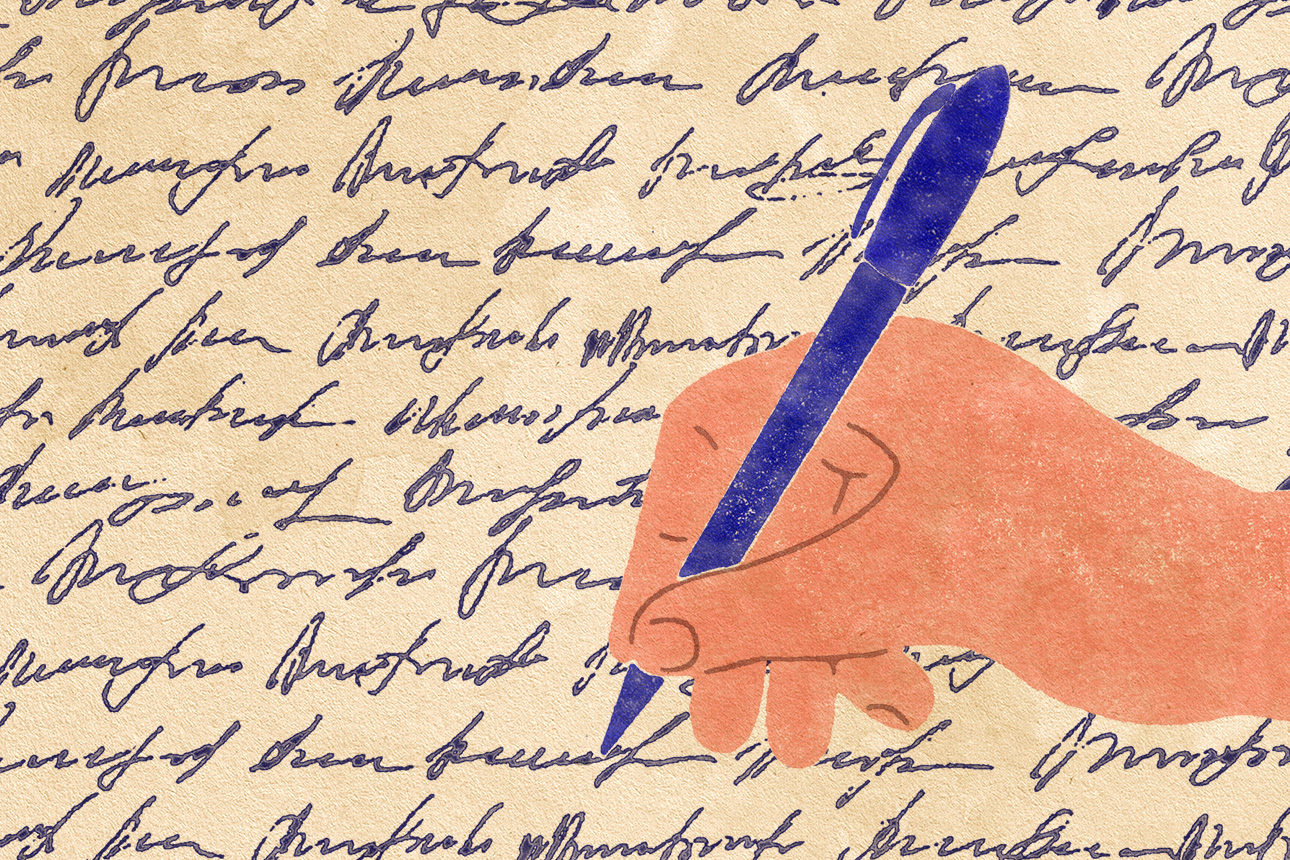Amid Growing AI, Humanize Communication to Strengthen Relationships
Handwritten notes can help build authentic connections in an era when digital communication is everywhere.

Carolyn Geason-Beissel/MIT SMR | Getty Images
AI entered a new era when artificial intelligence tools like ChatGPT became available to the public this year. These technologies are taking over more and more aspects of business as they seep into the collective consciousness. As Vox put it, generative AI is “suddenly everywhere,” and it’s poised to profoundly change daily life within organizations in many ways, particularly in the sphere of communication.
More than ever, when people receive texts, emails, or other digital messages, they have reason to wonder whether an actual human being wrote them. ChatGPT is even being used to write custom messages to individual executives on LinkedIn. In response, tools are being created to help people determine whether a message was really written by a human. Some of these tools are made by the same companies whose technologies generate such text. But few people are likely to use these detectors in the short term, and even if they do, there will be a continuous cycle of AI-based text generators constantly working to outsmart the detectors.
Get Updates on Innovative Strategy
The latest insights on strategy and execution in the workplace, delivered to your inbox once a month.
Please enter a valid email address
Thank you for signing up
The net result is clear: When it comes to digital communication, we’re unlikely to trust most “personal” digital messages for a while to come. This is why, in working to build authentic relationships, sidestepping technology altogether has newfound power.
Handwritten Messages Take on New Value
Few people answer calls from unrecognized phone numbers these days. And executives are increasingly aware that AI is also being used to schedule such calls, which can make them feel like just another name on a list.
In an effort to connect with decision makers, I recently tried going a different route: I wrote notes by hand to several executives and dropped them in the mail. Some of these have led to very positive personal responses and meetings, and even contract discussions. These relationships are being built on meaningful foundations that could lead to long-term business growth.
There have always been people who prefer to write business notes by hand, but it’s never before carried such a significant connotation — that a real person has taken the time to write out a personalized message rather than choosing an easier option. And a recent study shows how powerful that can be: Researchers from business schools at the University of Maryland and Yonsei University in South Korea found that “presenting a handwritten note has a positive and significant effect on customer spending” and that “warmth underlies the key findings.”
Humanizing Communication
A similar principle applies to internal communication as well. Some managers now use technology for things like employee recognition and turn to generative AI to create and send complimentary messages to team members. While this may be helpful for overwhelmed and exhausted managers, it can also reduce the sense of meaning and personalization that employees may be looking for. This is why handwritten notes can be a powerful way for managers to show employees — especially remote workers, who aren’t in the office to receive such recognition face to face — their genuine appreciation.
Writing notes by hand may not be the right move for everyone — such as if someone’s penmanship is particularly difficult to read. But there are other ways to personalize communication, including creating videos or voice memos tailored to a specific individual, or even leaving a voicemail if a phone call goes unanswered. Some people block off a time in their schedule and say, “I’m going to keep this two-hour block open in hopes that you might want to chat. Reach out anytime within that time frame, and I’ll drop whatever I’m doing.”
The key is to always be on the lookout for ways to emphasize our humanity in our communications. The more we do that, the less of an interloper AI will be in our relationships — and the more authentic and rewarding they’ll become.
